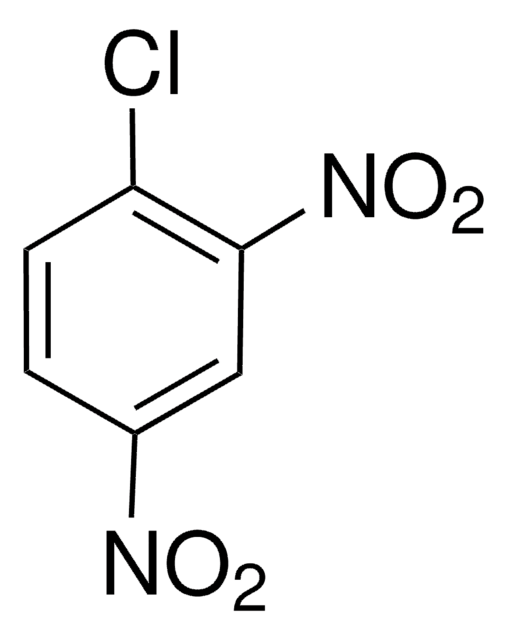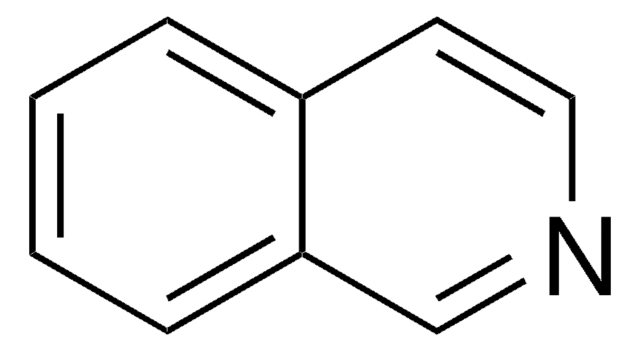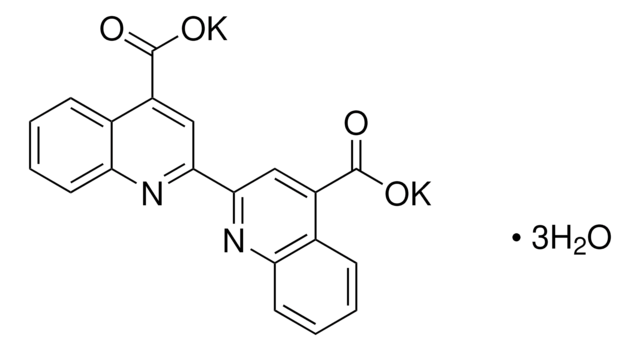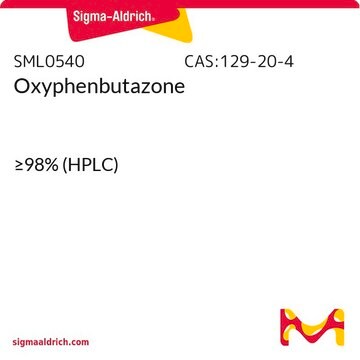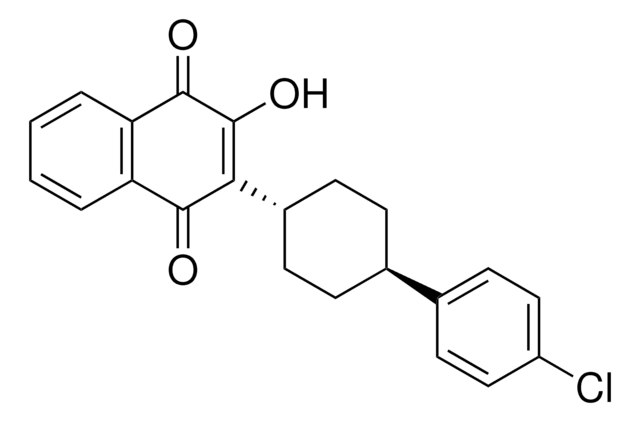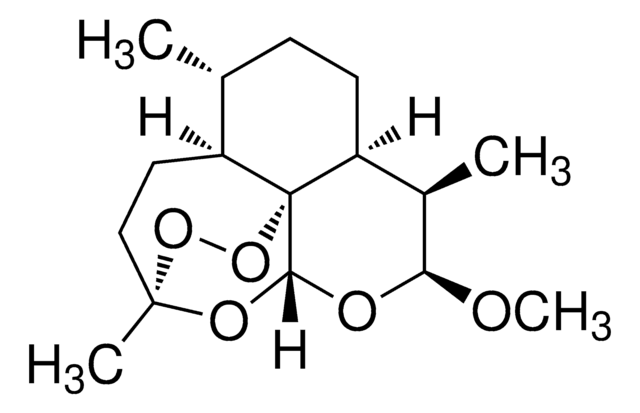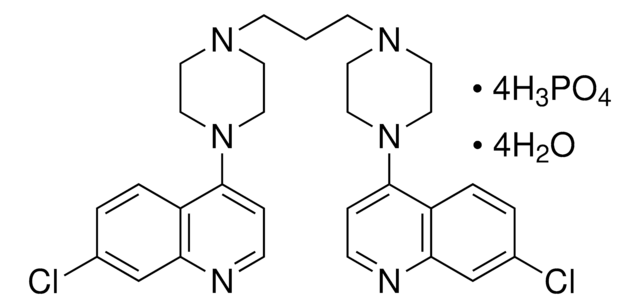160393
Primaquine bisphosphate
98%
Synonym(s):
8-(4-Amino-1-methylbutylamino)-6-methoxyquinoline diphosphate salt, Primaquine diphosphate salt
About This Item
Recommended Products
Quality Level
Assay
98%
form
powder
mp
205-206 °C (dec.) (lit.)
solubility
water: soluble 50 mg/mL, clear, orange to red
functional group
amine
phosphate
SMILES string
OP(O)(O)=O.OP(O)(O)=O.COc1cc(NC(C)CCCN)c2ncccc2c1
InChI
1S/C15H21N3O.2H3O4P/c1-11(5-3-7-16)18-14-10-13(19-2)9-12-6-4-8-17-15(12)14;2*1-5(2,3)4/h4,6,8-11,18H,3,5,7,16H2,1-2H3;2*(H3,1,2,3,4)
InChI key
GJOHLWZHWQUKAU-UHFFFAOYSA-N
Looking for similar products? Visit Product Comparison Guide
Application
Signal Word
Danger
Hazard Statements
Precautionary Statements
Hazard Classifications
Acute Tox. 3 Oral - Muta. 2 - Repr. 2
Storage Class Code
6.1C - Combustible acute toxic Cat.3 / toxic compounds or compounds which causing chronic effects
WGK
WGK 3
Flash Point(F)
Not applicable
Flash Point(C)
Not applicable
Personal Protective Equipment
Choose from one of the most recent versions:
Already Own This Product?
Find documentation for the products that you have recently purchased in the Document Library.
Customers Also Viewed
Our team of scientists has experience in all areas of research including Life Science, Material Science, Chemical Synthesis, Chromatography, Analytical and many others.
Contact Technical Service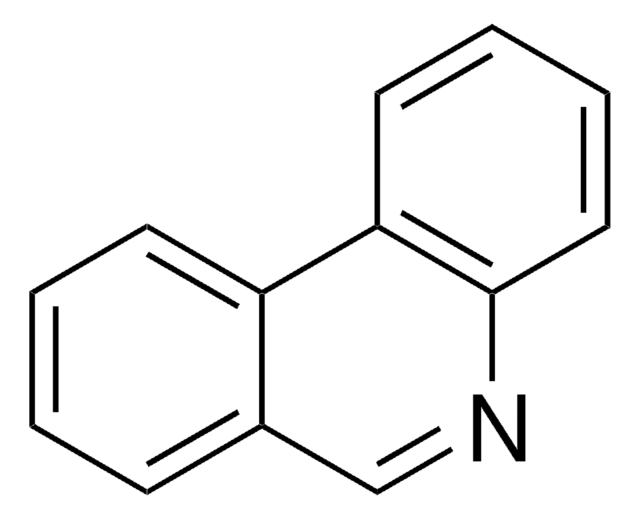

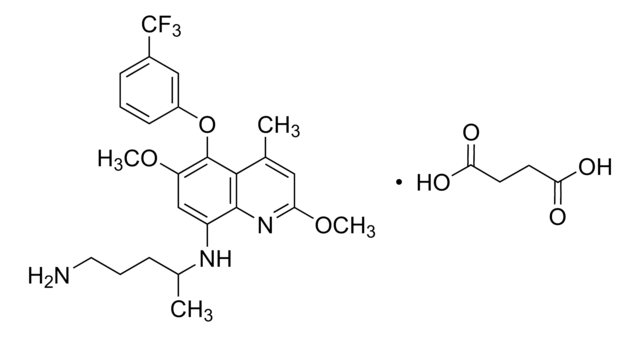
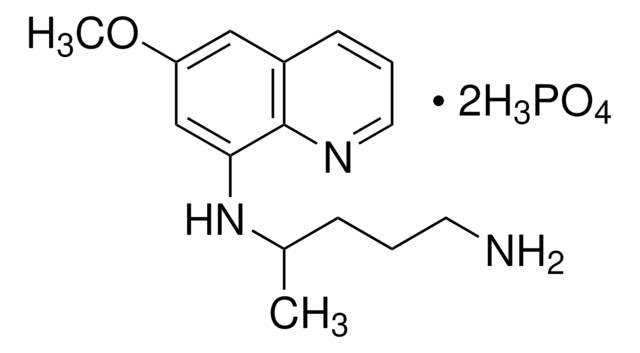
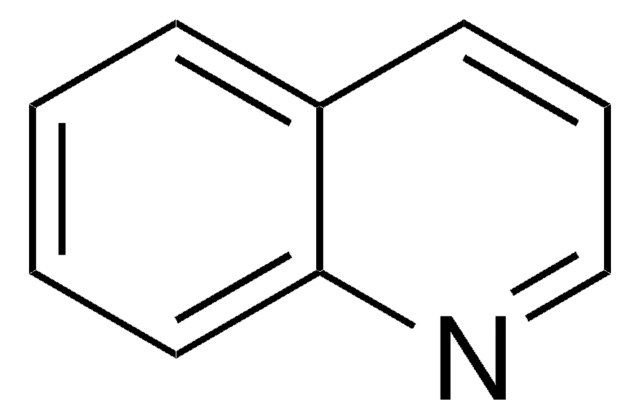

![Benzo[h]quinoline 97%](/deepweb/assets/sigmaaldrich/product/structures/344/715/928932d2-4ca4-4402-b56c-85a80100ce17/640/928932d2-4ca4-4402-b56c-85a80100ce17.png)
